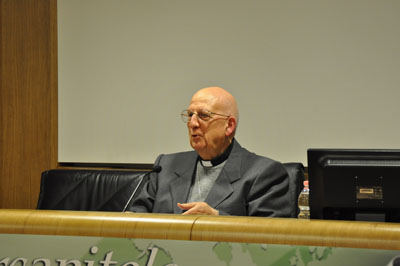“The question of hope,” Benedict XVI wrote, “is truly central to our lives as human beings and our mission as Christians, especially in these times.”[1] Today, it is precisely hope that is in crisis. The Pope dedicated a beautiful encyclical to this subject (Spes Salvi, 2007).[2] On 13 December 2007, speaking to university students in Rome, the Holy Father summed up in a single paragraph, packed with ideas, the encyclical’s analysis of the crisis of hope that humanity is experiencing today. In substance, he says, this crisis is due to the improper separation of the social/immanent dimension of human hope from its transcendent dimension. “In the 17th century,” he explained, “Europe experienced a true epochal change and from that point on the mindset has been growing that human progress is the result of science and technology alone, and that faith should concern itself only with the salvation of the soul–a purely individual salvation. Reason and freedom, the two predominant power ideas of the modern age, have been detached from God and made autonomous so as to facilitate the building of ‘the kingdom of man,’ which, in practice, is opposed to the Kingdom of God. This has led to a diffusion of a concept of materialism, nourished by the hope [an exclusively ‘social’ and immanent hope] that a change of economic and political structures will finally give rise to a just society in which peace, freedom and equality reign.
…
__________________________________
[1] Benedict XVI, Message on the occasion of the XXIV World Youth Day, 5 April 2009.
[2] The numbers that appear in parenthesis in the text of this talk refer to the corresponding paragraphs in the encyclical Spes Salvi.
